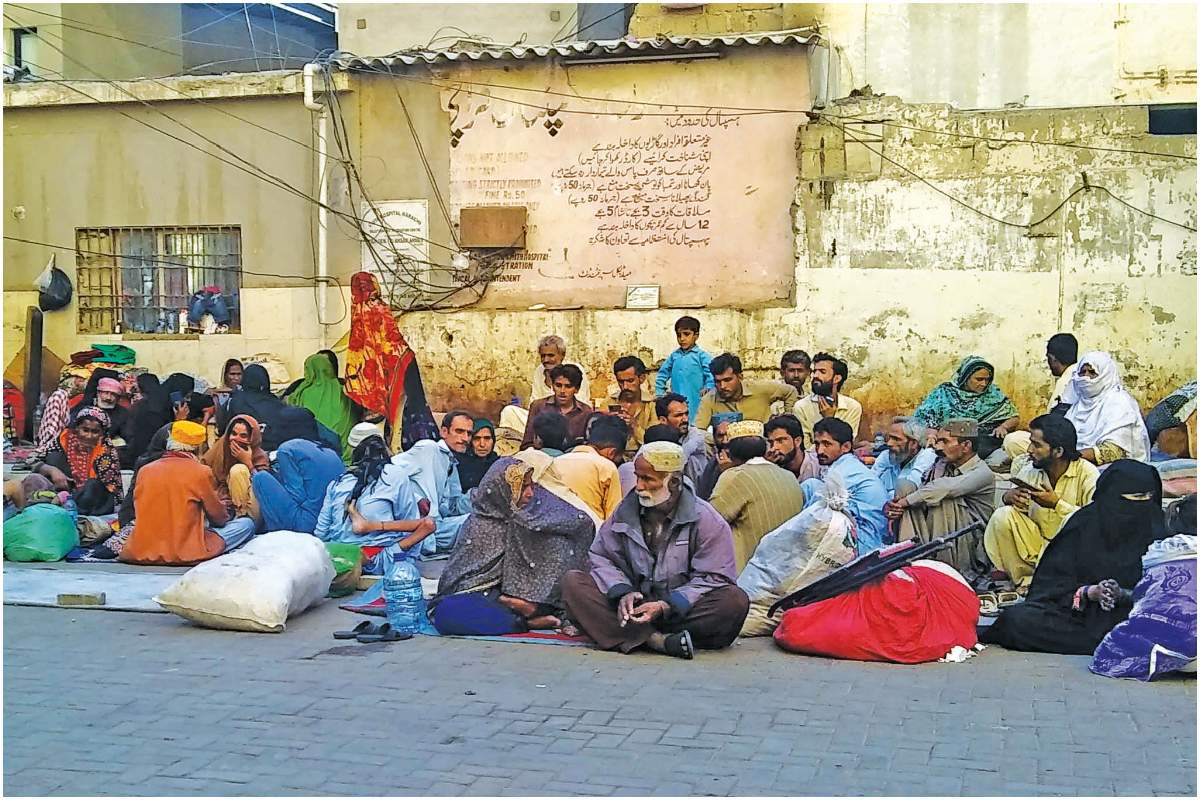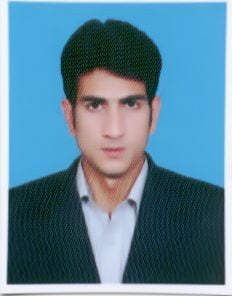
PHOTOS: ATHAR KHAN/BOL NEWS
Long queues at govt hospitals amid economic crunch leave patients in distress
Karachi: Patients at the government hospitals in Karachi are facing immense challenges to get necessary healthcare, owing to long queues for a token at the Outpatient Department (OPD), besides difficulties in finding a bed or a stretcher.
The patients have also complained of the inefficient and indifferent attitude of the staff at these public health institutions.
Muhammad Waseem, a resident of Hijrat Colony, lambasted the inefficiency of the staff and the lack of equipment at the Gynecology Ward of the Civil Hospital.
“My wife was pregnant with our twins when we applied for her treatment and delivery at the hospital. It was a nightmare for my wife, as the staff did not take her case seriously when she started having contractions,” he said.
“While she was in labour, the staff did not bother to change the infected bed-sheet, despite repeated requests. She was forced to lay in that bed all day,” Waseem recalled.
One of the twins was pronounced dead soon after birth, as Waseem’s spouse had experienced complications in her pregnancy, while the other child was referred to be put in the intensive care nursery (ICN) or incubator.
“They refused to admit my newborn in the ICN, saying that all the units were occupied. I had to borrow money to put my newborn in the ICN of a private hospital, which costs me Rs14,000, just for keeping our baby there for two days,” he remarked.

Social injustice is also rampant in these government hospitals, as the patients with no reference have to wait for weeks or even months to get an MRI scan or to get admitted.
A nurse at the Jinnah Postgraduate Medical Centre (JPMC), on the condition of anonymity, said that the hospital lacks enough staff to entertain all the patients on time.
Part of the reason included a huge number of patients than the hospital’s capacity, as the patients not only from Karachi but also from interior Sindh or even from the Khyber-Pakhtunkhwa (KP) and Balochistan visit the hospital on a regular basis, he added.
“We try to do as much as we can to address the patients’ and their family members’ concerns. However, with the increasing number of patients, we opt to first look into the cases that are more critical and need immediate attention,” he added.
Abdul Aziz, 30, was admitted at the Sindh Institute of Urology and Transplantation (SIUT), where the doctors conducted his kidney surgery.
Recounting his days at the hospital, he said, he was shifted to the General Ward without having a nurse to take care of him, as soon as his surgery was performed.
“They did not let any of my family members to be with me, owing to the hospital rules, while there was no nurse to attend. That night, right after my surgery, was the hardest time of my life, when I had to get up and drink water by myself and I could not even do that,” he added.
With a population of around 20 million and area spreading over 3,530 square kilometres, Karachi is the world’s second most populated city. However, the city has very few government hospitals to address the health issues of the people.

The government hospitals in the metropolitan, included Abbasi Shaheed Hospital, Civil Hospital, Jinnah Postgraduate Medical Centre (JPMC), National Institute of Child Health (NICH) and the National Institute of Cardiovascular Diseases (NICVD).
Amid the lack of government health facilities in the outskirts of the city, the residents flock to the few hospitals available in Karachi.
Because of the lack of resources, the relatives of the patients from the far-flung areas have been forced to stay outside the hospital premises.
One such example is the Shaheed Mohtarma Benazir Bhutto Institute of Trauma Centre, where dozens of people, mostly from the interior Sindh and outskirts of Karachi, reside in the open areas in front of the hospital.
Ayesha, a resident of Landhi, has been trying to get her son admitted at the Civil Hospital or JPMC for his hernia operation, but to no avail. Her husband is an expatriate, and she is alone to take care of her five children.
“I want to bring my son to any of these hospitals, as I cannot afford a private hospital but I cannot spend my whole day standing in a queue to get a token at the OPD, while my kids are alone at home,” she said.
“There is no government hospital near my residence, so I have to bring my son to one of these hospitals. I will have to leave my other children with their grandmother, so I can take care of my son at the hospital,” she added.
Besides, the country is also facing a shortage of oxygenators and valves required for heart surgeries, owing to a massive rupee depreciation and hurdles in the opening of the letters of credit (LCs) to import the active pharmaceutical ingredients.
Rahim Khan, a heart surgeon at a private hospital, said that the hospitals are experiencing a shortage of oxygenators and valves, essential to keep the patients alive during the surgery.
“A week ago, the hospital management informed me of increasing charges of heart surgery due to the hiked prices of such instruments,” he said, adding that the public hospitals do not have that facility, instead they postpone surgeries.
As the economic crisis worsens in the country, dozens of pharmaceutical companies have expressed their inability to continue production, citing unavailability of the raw material.
Kaiser Waheed, former chairman of the Pakistan Pharmaceutical Manufacturers Association (PPMA), said that the banks are refusing to open LCs due to the unavailability of dollars, despite the government authorities’ continuous statements of allowing banks to open LCs for import of pharmaceuticals.
“Thousands of containers are stuck at the port, including those of pharmaceutical companies. These companies’ stocks of equipment and medical devices have reached their capacity,” he added.
The patients feel the brunt of such situations, as profiteers sell medicines on increased prices in the black market, or there is a risk of forfeiting products in the market, which could be dangerous to the health of the people rather than treating it, Waheed remarked.
Earlier on this month, the Economic Coordination Committee (ECC) of the Cabinet gave its approval for increasing the prices of 20 medicines, including the price of Paracetamol.
The ECC approved the recommendation of the Drug Pricing Committee (DPC) for an increase in the maximum retail price (MRP) of Paracetamol products and fixed the price of Paracetamol 500mg plain tablet at Rs2.67 and Paracetamol extra 500mg tablet at Rs3.32.
Catch all the Urban Insight News, Breaking News Event and Latest News Updates on The BOL News
Download The BOL News App to get the Daily News Update & Live News.












 Read the complete story text.
Read the complete story text. Listen to audio of the story.
Listen to audio of the story.